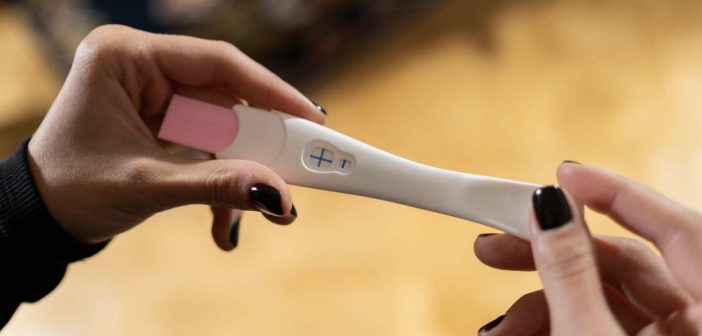No longer do women who think they might be pregnant rush to see a doctor to confirm their thoughts. Today, all you have to do is go up to a counter and ask for a pregnancy kit if you want to find out for yourself at home. There are a lot of reliable brands of pregnancy test kits on the market. These can be purchased at local pharmacies or, more conveniently, online. If you’ve never used one before, you might be wondering how much it costs. You’re about to find out, but first, let’s go over how pregnancy tests work.
The cost of pregnancy kits in Singapore
There are both cheap and expensive pregnancy strips. You can get them for anywhere from $1 to $36. All of it depends on the brand, quantity, and features it has. Some pregnancy tests can be 99% accurate even if you take them five days before your period is due. However, these tests cost more. You don’t have to wait until you’ve missed your period to use this type of kit. Some of them, like Clear Blue, tell you how many weeks gone you are.
Cheaper strips are very basic and can give you what you want without breaking the bank. They’re accurate, have lots of good reviews, and are unbranded.
Here is a list of some well-known brands in Singapore and their price range.
- Zoey’s Preg-O Bundle – 24$
- Clear Blue Digital Pregnancy Test Kit — $21-25
- HCG Urine Test Strips — $1-$2
- First Response Pregnancy Test Kit — $30-$36
- Watson’s One-Step Pregnancy Test — $6-$8
- Predictor Early Pregnancy Test Strip — $14-$17
Read Zoey Singapore’s guide to know more about Pregnancy Test Kit In Singapore.
How does a pregnancy test kit work?
Pregnancy occurs when the ovum is fertilized and becomes embedded in the uterine lining. This causes the pregnancy hormone HCG to be released. The same hormone is excreted in the urine and serves as a pregnancy indicator. All pregnancy tests, including home test kits, detect HCG, which begins to be produced around 6 days after fertilization and is detected by all pregnancy tests, including home test kits.
Most pregnancy tests come in a box with one or two strips. You only need one of these sticks. You pee on the stick and wait a few minutes for the result to appear. Or collect your urine in a container and dip the strip into the urine. Leave it to rest for a few minutes for the result to appear. Because each test kit differs slightly, always read the instructions before interpreting your results. Some home pregnancy test kits are more sensitive than others, but the vast majority will detect HCG between the fourth and fifth weeks of pregnancy.
How reliable are home pregnancy tests?
Over 99% of the time, pregnancy tests you do at home are right. So, a positive result is very likely to be true. If you didn’t take the test too soon, a negative result could mean you’re not pregnant. If you are still very early in your pregnancy, it’s possible to get a negative result because there might not be enough HCG hormone in the urine. Pregnancy tests are generally most accurate beginning on the first day of your missed period. Wait a few days and try again if you receive a negative test but still believe you’re pregnant. Speak with your doctor if a second test yields a negative result but your period has yet to come.
Some explanations for false positives
The following might be reasons for a false-positive result.
User error
You run the risk of getting a false-positive result if you haven’t followed the instructions very carefully.
Recent miscarriage or abortion
If you recently experienced a miscarriage or had an abortion, you may still test positive. This means that there are still traces of HCG in your urine, albeit low.
Fertility medication
If you take a test 7–14 days after fertility treatment, you’ll test positive. Some fertility medications contain HCG.
Medical condition
Certain medical conditions, such as ovarian cysts and kidney disease, can cause HCG levels to rise and result in a false positive.
Ectopic pregnancy
An ectopic pregnancy occurs in the fallopian tube and can cause the tube to rupture. In this case, there is an unviable pregnancy. A pregnancy test would detect HCG levels and give a positive result. Through the use of an ultrasound, your primary care physician is the only one who can definitively tell you if you are carrying a healthy baby. Spotting and abdominal pain could indicate an ectopic pregnancy. See your doctor as soon as possible if you experience any of these.
Biochemical pregnancy
A miscarriage occurs within two to three weeks of a biochemical pregnancy. There’s still enough HCG left from what the embryo made. If you take a test, it will give you a false positive, but an ultrasound will show that you are not pregnant.
Does the pregnancy test have to be with my first-morning urine?
It doesn’t have to be with your first-morning urine. The only reason your first-morning urine is preferred is because it is highly concentrated and most likely contains the highest concentration of pregnancy hormones.
If you don’t know if you should take a pregnancy test or not, the following signs may be an indication that you need to.
- If you’ve missed your period
- If you get cramps without getting your period
- If you feel fatigued
- If you get all the signs that usually follow your period but still have no period
- If you feel nauseous
- Frequent urination and food aversion.





4 Comments
Pingback: What is the cost of a pregnancy test kit in Singapore?
Thanks a lot for sharing this post! If you like Wordle then I suggest you play a great alternative which is Quordle Unlimited
Thank you for the very interesting and useful information. What do you think about psychics who help with fertility problems? It would be interesting to read your opinion.
I personally have no experience working with psychics to help with fertility issues. However, I think that each person has their own way of solving problems, and what may work for one person may not necessarily work for others. If psychics help someone in this situation and it brings them comfort and confidence, then it certainly deserves respect. But if you want to contact a psychic on this issue, I can recommend fertility reading free. It’s free, and in any case you have nothing to lose. It is important to remember that each person makes choices according to what they believe in and what serves them best.